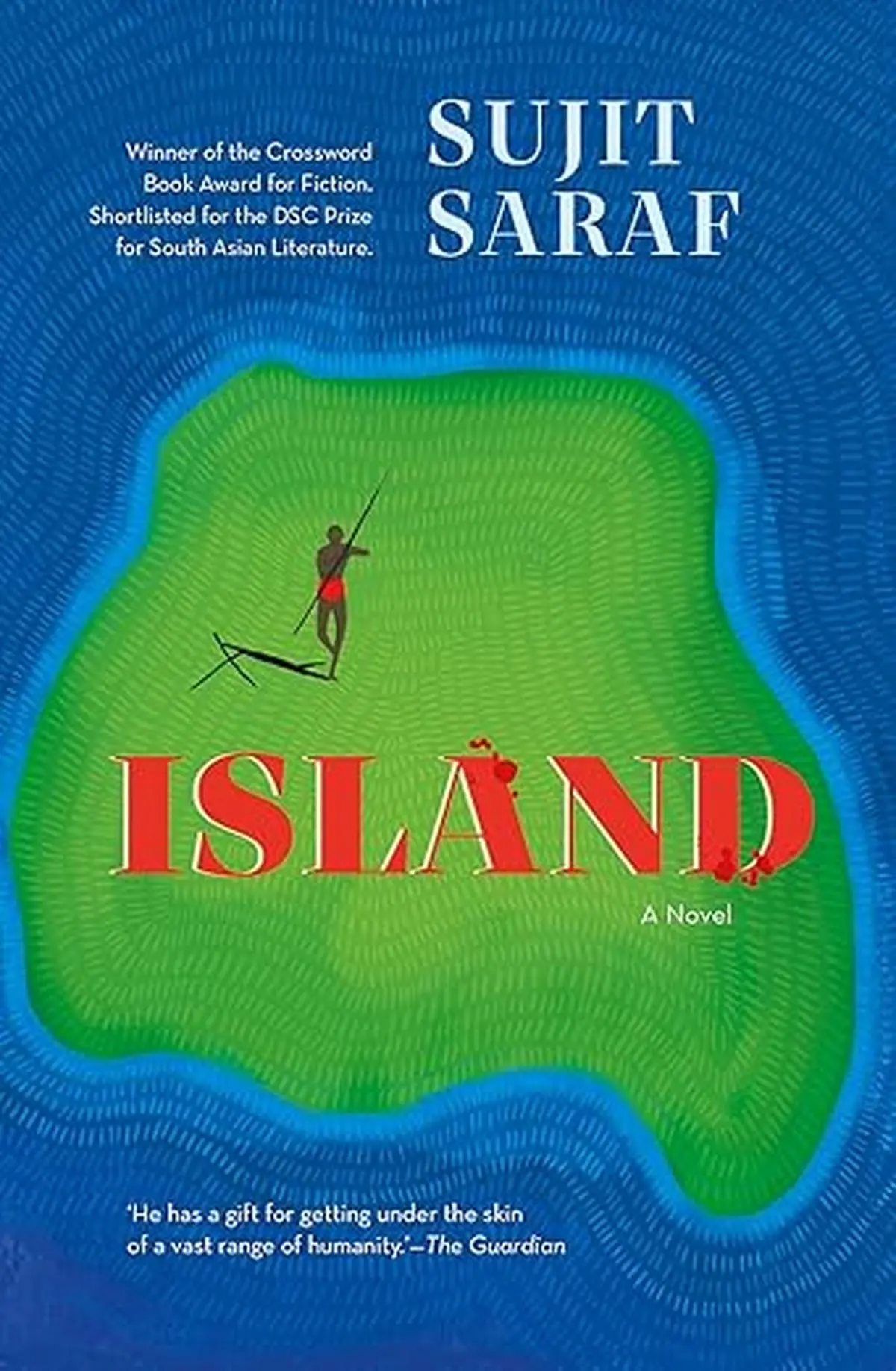In November 2018, a 26-year-old American missionary, John Allen Chau, made headlines when he ventured into the forbidden North Sentinel Island in the Andamans and got himself killed at the hands of what many call “the world’s most isolated” indigenous people, the Sentinelese.
His was a foolhardy mission, disrespectful of the rights of the Sentinelese, who have actively resisted contact with the outside world. Estimated to be a population of 50 to 100 individuals, the Sentinelese are one of the world’s last truly hunter-gatherer societies. They are a protected tribe and making contact with them is forbidden under Indian law. Chau was a trespasser and a law-breaker.
Sujit Saraf’s novel Island reimagines Chau’s story by giving it a fictional twist. Saraf blends historical events with fiction, centring on Steven Li (a character inspired by Chau), the Sentinelese people, and Nirmal Chandra Mattoo, an anthropologist loosely based on T.N. Pandit, who led friendly contact missions to North Sentinel Island from the late 1960s to the early 1990s.
Also Read | Behind evangelist Chau’s fatal mission to the Sentinelese
In Saraf’s fictional story, the Anthropological Survey of India (AnSI) decides to resume friendly contact with the Sentinelese after the 2004 tsunami. In their first outreach, a tribeswoman voluntarily approaches the team and spends several hours aboard their yacht. In the captain’s cabin, Mattoo studies and interviews her alone, naming her Suman.
Island
By Sujit Saraf
Speaking Tiger
Pages: 256
Price: Rs.499
When the team returns eight months later, the tribespeople greet them with hostility: “[I]n ankle-deep water, they were squatting—every man, woman and child—presenting bare buttocks in a defecation ritual,” writes Saraf. The reason? Mattoo. Suman, now visibly pregnant, is carrying his child, sparking the tribe’s anger. This incident, straight out of a clichéd Bollywood script, occasions the next course of sensational events, including Mattoo’s sudden paternal pangs and more illegal forays into the island, this time with a zealous Steven. The novel reaches its dramatic crescendo with Steven’s mysterious disappearance, leading to a tragic finale where the armed forces open fire on the Sentinelese, wiping them out entirely. But before that massacre, Steven succeeds in converting them to Christianity, becoming the “Sentinelese Jesus”.
Disturbing implications
Even as fiction, the book suffers from weak research and raises serious ethical issues. Saraf distorts the islands’ complex history and grossly misrepresents the Sentinelese while dismissing the concerns of anthropologists, activists, and environmentalists dedicated to protecting tribal rights—he disparagingly calls them the “AnSI types”.
Given the fact that the Sentinelese have resisted contact with the outside world, Saraf’s imagining of their lives and motivations is disturbing and, as such, misleading. While Chau’s death was undoubtedly tragic, it raised questions over the ethics of evangelism. Chau’s reckless mission was criticised by the whole world, even his father. He was trained and supported by a radical evangelical group called All Nations International, which hailed him as a martyr, perversely arguing that denying tribespeople the choice to accept or reject Christ violates their human rights.

Island reimagines American missionary John Allen Chau’s story by giving it a fictional twist.
| Photo Credit:
By special arrangement
Saraf’s pandering to radical evangelical rhetoric renders his work dangerous for the Sentinelese, undermining their agency and threatening their existence. Island does what Chau, with all his wrong-headedness, could not: convert the Sentinelese and give them an American Jesus. It is precisely this kind of fiction that once captivated Chau, spurring his mission to North Sentinel. Why would anyone conjure an absurd plot involving cultural genocide?
Ethical concerns
To make sense of Saraf’s views, I attended a talk that he gave at the India Habitat Centre on October 21, 2024. “It is not a novel about Port Blair or anything of that sort. It is not even a novel about India. It is a novel about evangelisation,” he told the audience. He went on to make claims that were far from true: that “the government of India does not know what to do with these tribes [Sentinelese]” (The government, in fact, has a clear “eyes-on and hands-off” policy); that the “government of India funds… friendly missions where anthropologists go to the islands, stand in [the] ocean… and hand coconuts to the North Sentinelese” (this practice was ended in the 1990s); that “over a few generations, these tribes [Sentinelese] will die, whether you like it or not” (there is no evidence to support this conjecture); and, most outrageously, that T.N. Pandit “died two, or three, or four years ago”. When I corrected him and said that Pandit is alive and that we interact regularly, he responded: “That’s not possible. I read his obituary.”
Also Read | A history of reaching out to the Sentinelese tribe of the Andamans
With one dismissive statement, Saraf brushed aside all the ethical concerns raised about his novel. “Out of humanity. I think it is normal to feel sympathetic towards—let’s use the word ‘civilisation’—which is far weaker than us…. So, out of humanity, I feel sympathy for them [Sentinelese]. And [at] the same time, unlike an activist… I will not be affected if they were to get wiped out. So that’s my perspective. Some sympathy. But in all fairness, no serious concern,” he said.
A California-based engineer who has never set foot in the Andamans, Saraf looks through a Darwinian lens to concoct a story that veers towards racism. Island is a dangerously misguided novel—it is immoral, irrational, unethical, ugly, and deeply troubling.
Ajay Saini teaches at the Indian Institute of Technology Delhi. He works with remote indigenous communities.
